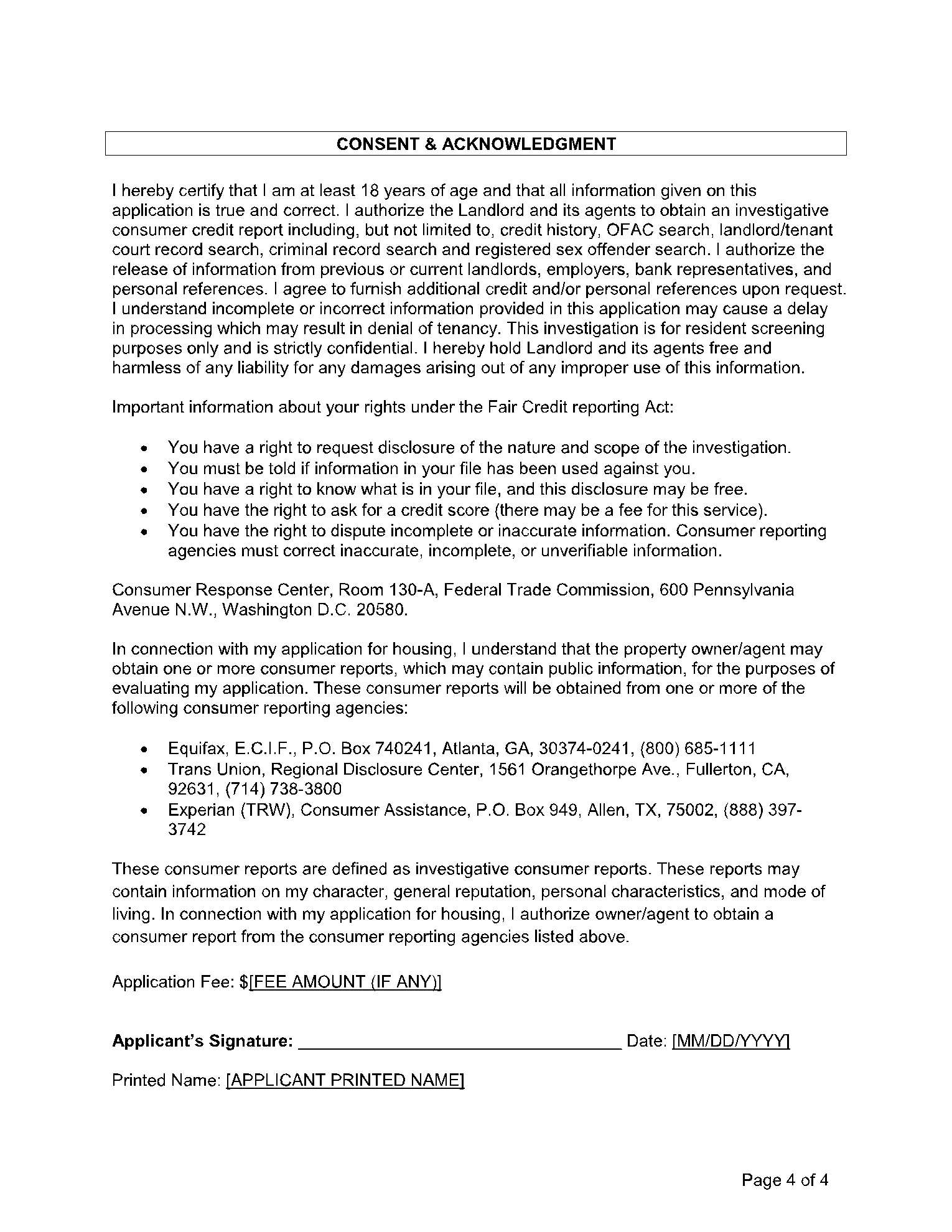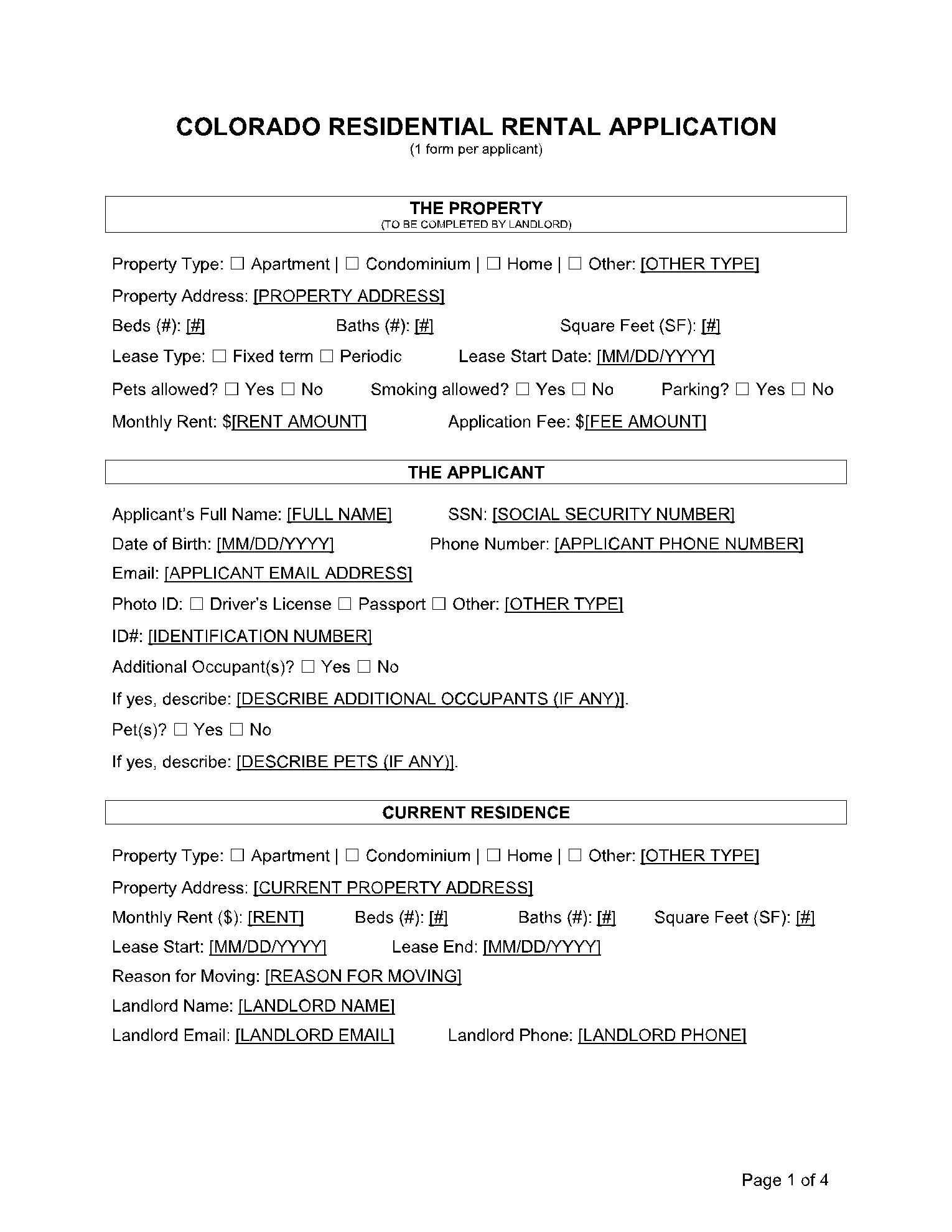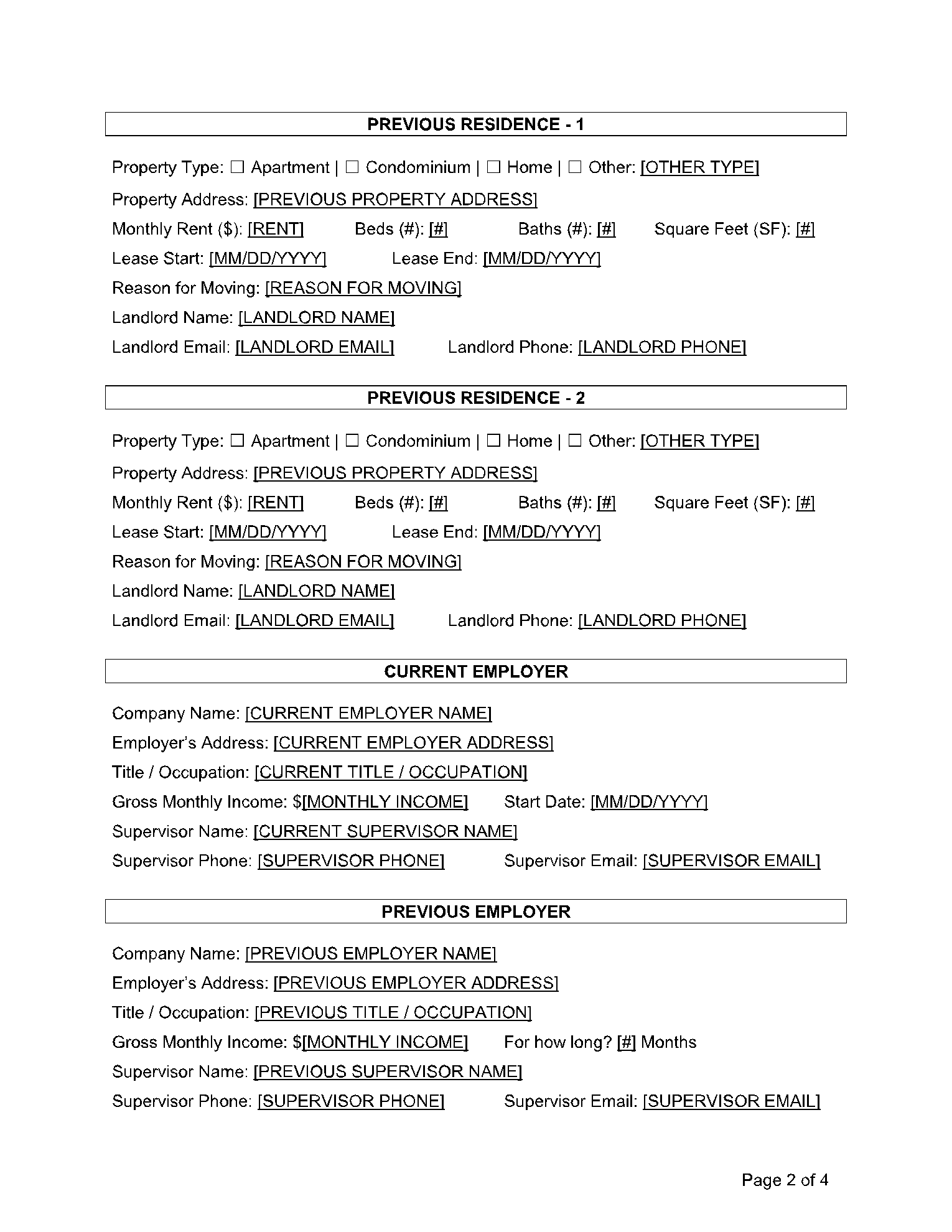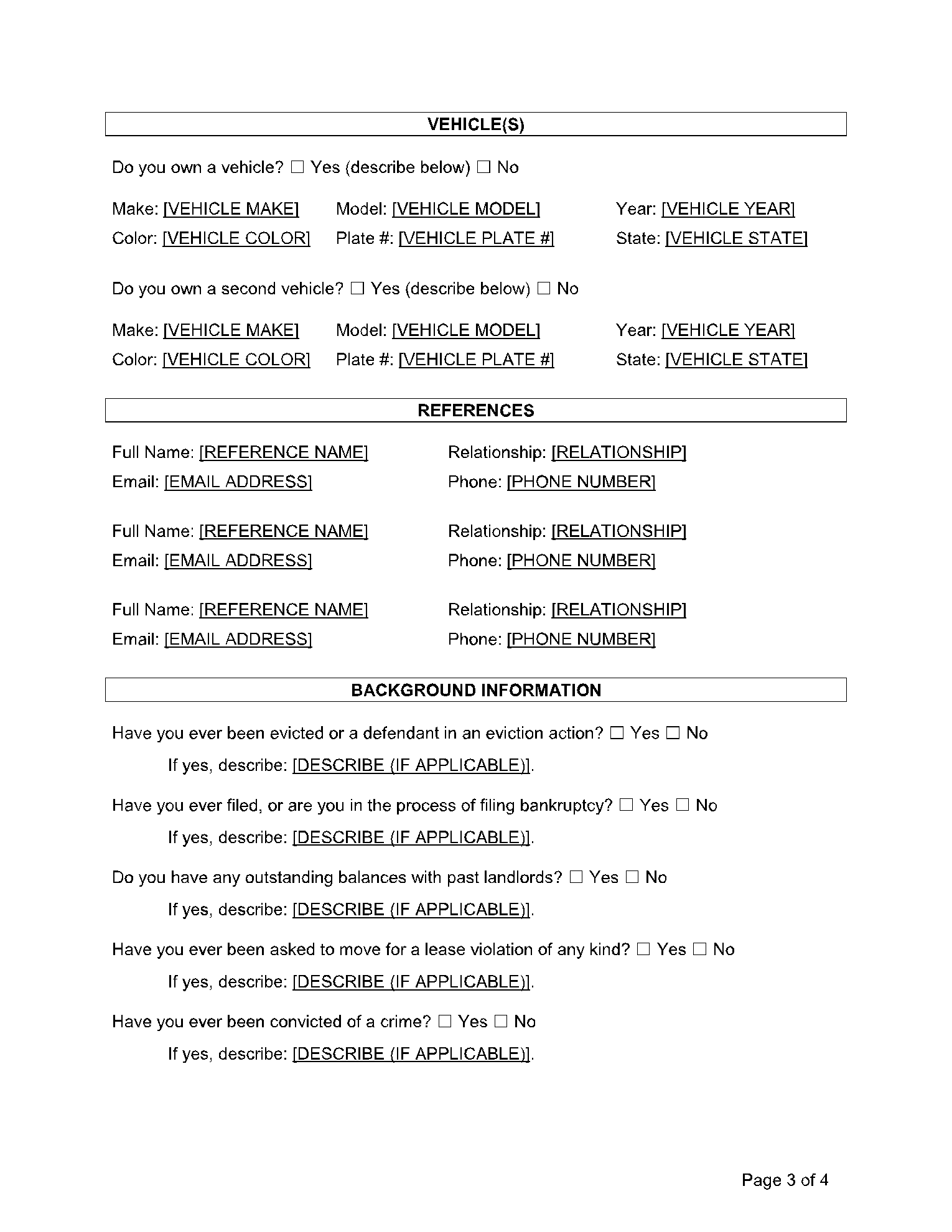Life is good in Colorado’s real estate industry. If you are considering getting a rental space in this booming market, you will find the information on this page helpful. As a landlord or manager in Colorado, you can enjoy the benefits of Colorado’s increased equity appreciation of real estate.
This article aims at providing an understanding of Colorado’s rental application form and its individual value to the tenant and landlord.
What is a Colorado Rental Application?
In Colorado, landlords require rental application forms to screen tenants. Landlords conduct screening to determine whether to allow applicants to rent their property. The form requires all applicants to be over 18 years of age.
The rental form provides access to the rental applicant’s name, address, income, and social security number. Landlords use the collected data to gain an in-depth understanding of the applicant’s financial situation and history. The landlord then approves or declines applications based on an applicants’ credibility and financial capability.
Why is it Important to Have a Colorado Rental Application?
Despite being of great value, most people underestimate the importance of the Colorado form for rental applications. Besides collecting useful details, it can also provide legal protection if used correctly.
- Screening Applicants: Landlords can use these forms to pinpoint and approve the most valuable applicants before losing them to other landlords. A well thought out rental application form can be instrumental in spotting the best tenants.
- Familiarizing with Potential Clients: The best rental application template aims at asking the right questions and having proper authorizations. These questions should aim at gaining answers that will help the landlord better understand the applicant.
- Employment History: Is the applicant in an unstable industry? Do they switch jobs constantly? Are they hesitant to provide a reference from work? If an applicant is a crumbly employee, chances are they could be crumbly tenants as well.
- Background Check: Background checks, like credit scores, can uncover crucial information about tenancy applicants. Does the applicant have a criminal history, such as theft or vandalism? As a landlord, you don’t want these issues to come up halfway through a lease.
- Landlord Referrals: This one is huge. It is an obvious indicator of whether the tenancy will work out or not. It involves calling the previous landlord and inquiring about the tenant. Ensure that the tenant was affable, made timely rental payments, and left the apartment in good condition.
What is Included in a Colorado Rental Application?
Other than the applicant’s personal data including name, address, income, and social security number, there are some must-have questions in Colorado’s rental application form. These include:
- “Have you ever been evicted? If so, name the state and reason for your eviction.”
This question serves as an indispensable prescreening tool, but also gives applicants a chance for honesty. Honesty speaks volumes about a person’s integrity. If an applicant has a reasonable explanation for the eviction, the landlord can still consider their rental application.
- “Have you ever been convicted of any crime? If so, kindly explain all offenses.”
Most forms for rental applications fail to ask this question. Those that do, only inquire about felony convictions. This question helps the landlord determine if a potential tenant is a law-abiding citizen. It also offers the applicant an opportunity for honesty.
- “How many people will be residing in the property? Kindly state the age of each potential resident.”
Some renters will stay alone, while others will move in with their families. It is important that the landlord has information about all the people residing in the apartment. This information may not necessarily disqualify an application but will provide vital details.
- “Do you have any pets or animals?”
This question, together with several others, helps you understand the applicant’s lifestyle choices. You can also include questions like “Are you a smoker?” or “Are you a musician?" These are significant factors to consider when selecting tenants. They don’t aim at disqualifying applicants but provide vital information about their lifestyle.
- “Why did you leave your previous residence?”
The reason for leaving their former residence provides a critical bit of information. The most common reasons include lease expiry and the need to move to a different location or a bigger house. However, you need to look out for some red flags.
Figure out if an eviction initiated the move, and if the applicant had any altercations with the preceding landlord. They could also be an impulsive person who moves out at a moment’s notice. The idea is to find a tenant who will stay to the end of the lease without any drama.
If an applicant lies in the application form, the landlord should revoke their application immediately. No landlord wants to be financially dependent on a dishonest person.
Regulations in Colorado Governing Rental Applications.
Colorado’s rental law protects tenancy applicants from financial exploitation. It states that the landlord should charge application fees consistent with the form processing costs.
Therefore, all prospective tenants applying for tenancy at the same time should pay the same amount. The total application fees should not exceed the total processing costs incurred.
The landlord must disclose all the expenses to tenancy applicants. He should provide a rundown of their projected screening expenses or a detailed list of their actual expenses. The landlord should refund any unused money to the applicants within 20 days.
Landlords can only look into 7 years of an applicant’s rental and credit history. For an applicant’s criminal history, landlords can only look as far back as 5 years from the application date. For each revoked application, the landlord should notify the applicant within 20 days of application.
Landlords are liable to the applicants if they violate any of these rental application regulations. The penalty for violation is thrice the amount of the rental application fee plus court costs. However, the prospective tenant must notify the landlord at least 7 days before filing a court case. If the landlord fails to correct the violation within that time, the applicant can file a lawsuit.
Conclusion
Now you know all the details about the Colorado rental application form. You understand its purpose and value. At CocoSign, we offer a wide variety of templates for various types of agreements. Kindly feel free to contact us for great Colorado rental application templates.



